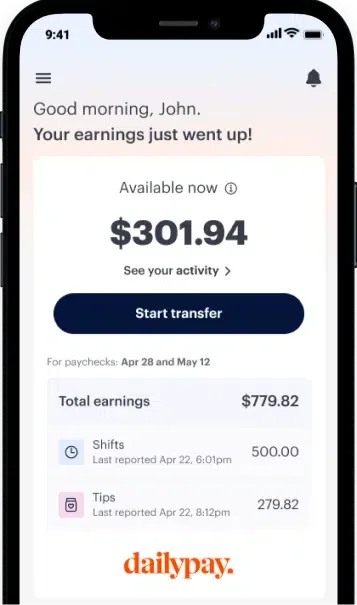1. Make a budget.
A working budget helps you keep track of your income and expenses. When done right, it can prevent overspending and help free up money for your financial goals. One simple thing you can do today is check in on your budget. If you don’t have a formal plan in place, don’t stress. The 50/30/20 rule is a great place to start. It breaks your spending into different categories, then allots a certain amount of income for each one.
2. Check your credit score.
Your credit score is a fundamental part of your financial health. Whenever you apply for a new loan or line of credit, most lenders will pull your score before approving your application. A higher score suggests that you’re responsible with your credit. A less-than-perfect credit score might indicate that you’re a risky borrower.
You can check your credit reports for free through AnnualCreditReport.com. Here you’ll see the information that shapes your credit score. Meanwhile, your free FICO Score is available through some banks, credit unions and credit card companies. Experian, which is a leading credit bureau, also offers it at no charge. From there, you can take steps to improve your credit score.
3. Make a plan to build your savings.
An emergency fund is just that—a pool of money you can draw on the next time you’re hit with a financial surprise. Experts recommend building three to six months’ worth of expenses, but getting there can take some time. Take a look at your budget to see how much you can set aside each month to pad your savings. Carving out $200 per month (or $100 per paycheck) works out to $2,400 at the end of one year. Setting up automatic monthly transfers can make it even easier. DailyPay can help you get this rolling.
4. Organize your debt.
Not all debt is necessarily bad. If you have a student loan with a low interest rate and a reasonable monthly payment, it might not be draining your budget all that much. It’s high-interest accounts (like credit cards) that can eat away at your income. The average credit card balance is $5,525, according to Experian data.
Today you can make a plan for paying down debt. You may choose to prioritize accounts that have the highest interest rate. Alternatively, you can put your lowest balances first. Either way, the goal is to accelerate your payments on one account at a time until it’s paid off. You can then move onto the next until you’re debt-free.
5. Eliminate unnecessary expenses.
Where does your income usually go? There’s the obvious stuff, like rent and bills—then there’s everything else. Here’s a starter guide of bills you can either reduce or cut altogether:
- Memberships and subscription services: Cancel ones you don’t really use
- Your energy bill: Contact your provider to see if you can opt for a fixed-rate energy plan. It averages out your regular usage, then charges you a flat monthly fee.
- Clothes and accessories: Come up with a more budget-friendly monthly spending limit
- Gas: See if you can carpool with friends or coworkers, or rely on public transportation
- Rent or mortgage: Consider taking on a roommate or moving to a more affordable home
- Books, movies and games: Hit up your local library for free rentals
6. Tweak your food budget.
If you look back on your bank statements, you might get sticker shock seeing how much you typically spend eating out. $10 here and $15 there can add up. Instead, give yourself a little allowance in this category and make it a line item on your budget. You’re essentially giving yourself permission to splurge throughout the month. This allows you to indulge without going overboard. At the same time, consider meal planning and batch cooking.
7. Up your investing game.
Start wherever you are. Maybe you currently make a small contribution to your retirement account, or you’re a newbie who isn’t super savvy when it comes to investing—both are totally fine. The idea is to do just one thing today to increase your awareness. Here are some ideas:
- If you participate in a 401(k), bump up your contribution enough to get an employer match (it’s free money!)
- Increase your retirement contributions by just 1%
- If you don’t have access to a 401(k), open a Roth IRA or traditional IRA. Both are tax-friendly ways to start building your nest egg.
- Open a regular brokerage account to access the stock market. Just be aware that individual stock picking can be a risky game. Mutual funds and exchange-traded funds (ETFs) are considered safer because they allow you to buy smaller shares of a variety of assets.
Before you go all in with investing, you’ll want to make sure you have a healthy emergency fund and that your debt load is under control. If not, you’re better off prioritizing those things before investing.
8. Research a side gig.
Side gigs take all shapes and sizes. Some possibilities include:
- Driving for a ride-share company
- Delivering groceries for platforms like Instacart
- Meal delivery
- Being a tasker for TaskRabbit
- Babysitting
- Tutoring
- Mowing lawns
- Selling art or creative work on Etsy
- Bartending or serving
- Freelancing or consulting within your professional industry
9. Sell unwanted stuff.
Your closet might be full of unwanted things you could trade for cash. Do an inventory of stuff like clothing, accessories, sporting equipment, books, old tech gadgets and more. After identifying things you’re ready to part with, take steps to sell them online. Sites like ThredUp, Facebook Marketplace and Decluttr are great platforms for connecting with potential buyers.
10. Stay on top of your health.
As the saying goes, an ounce of prevention is worth a pound of cure. Ignore your health long enough and you’ll eventually have a problem that requires immediate attention—and that can be expensive. Of those who had medical debt in 2020, Stanford University reports that the average amount was over $2,400. Staying on top of preventative care can help you avoid unwanted medical bills later down the line. Take a few minutes today to book your next physical and dental cleaning.
At DailyPay, we’re focused on making financial wellness simple, easy and accessible for all. The steps above go hand in hand with that mission.

